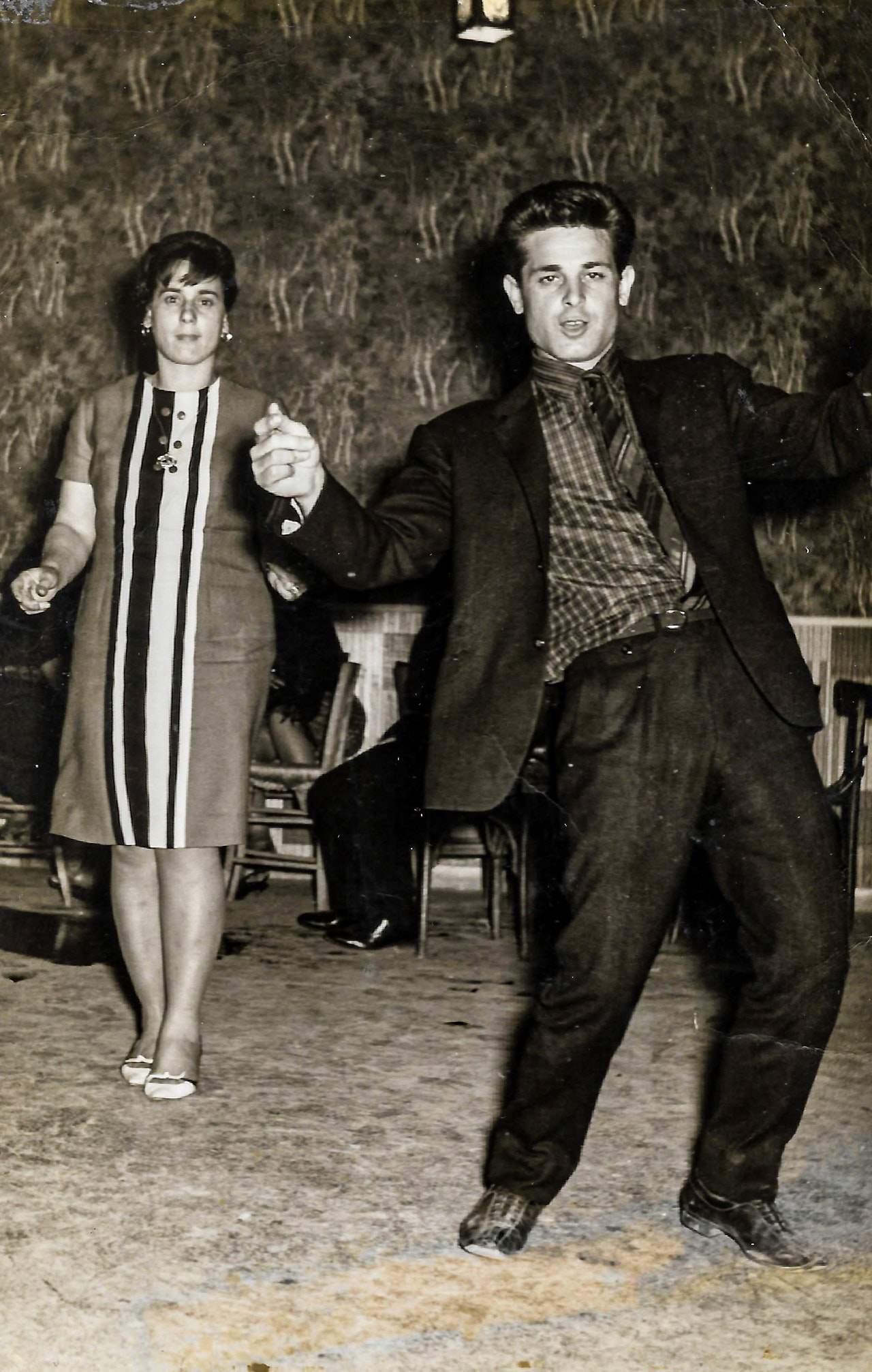We met on a cruise ship; he was a bar server, and I was the crew activities manager.
If you aren’t familiar with the 1977 beloved show “The Love Boat,” it was similar to the storyline of Julie and Isaac; she played a cruise director, and Issac was a bartender. While I found myself drunk on infatuation, our relationship wasn’t all that glamorous as depicted in “The Love Boat.”
When people learn that I worked on a cruise ship, they have this idea in their mind that it is glitz, glamour, travel, adventure, and fun.
Don’t get me wrong, it can be a lot of that. But it is also damn hard work and days that can be anywhere from four (those are rare) to 16 hours, where it is expected that crew members show up smiling and in perfect uniform, even on your worst of days.
While it is fun and full of adventure when I could muster up the energy to swim with the dolphins in Grand Cayman or hang on the beautiful beach of Cozumel, it can also be lonely and emotional when you don’t get to see your family and loved ones for six months.
Life working on ships is according to long six-month contracts. Those contracts are contagious, and everyone knows it. It’s a laugh in the cruise industry; one says, “This is my last contract,” and the typical response is a chuckle, or, “Oh, sure.” Any crew member knows that hearing someone say, “This is my last contract,” can never be taken seriously and likely means you will see the person back on board in two months.
Because while you either love or hate the cruise ship life, once working for a cruise line is in your blood, the lifestyle becomes a cyclical addiction.
It’s commonly six months of work on board (depending on the position), and then two months off. Two months is just enough time to become refreshed, rejuvenated, and evidently, enough time for any lonely or exhaustive memories to dissipate. So most go back and do it again.
When I thought my “last contract” was happening, my rocky love boat story transpired. I was living shoreside, working for an incredible mortgage advising team, and life was good.
But there was one thing that drew me back—the Isaac to my inner Julie.
Shipboard romances happen, and they unhappen within an average of six-month contract. Sometimes they will last a few contracts.
Then there are scenarios like mine, where they happen and draw you back to ships time and again.
He was from Trinidad, and I was from The United States. If we could have maintained a relationship on land, be together, and enjoy life, we probably would never have gotten married.
Marriage, unfortunately (and fortunately), was the only way we would be able to be together physically.
So first comes love, then comes marriage, then comes a baby in the baby carriage, right?
No. First came infatuation and passion (and love too), then came marriage (via a K-1 visa), then came a heartbreak and life disparage.
The K-1 visa process tells us we have 90 days to get married after he comes to the United States.
Here is how that went:
>> December: picked him up at the airport
>> March: married
>> One year later: divorced
There was so much ego involved in the process. I thought he was cheating, I was suffering from depression and polycystic ovary syndrome (PCOS) (and didn’t know it), and there was not a two-month break to rejuvenate. It just felt like one long, lonely six-month contract that wouldn’t let up.
I left the marriage after finding an inappropriate conversation online. I assumed he was cheating, although I later learned he never had an affair.
I don’t have regrets; forgiveness has cycled through us both, and we are friends to this day.
In many ways, I am thankful for the marriage and the whole experience.
It was the rockiest, wildest cruise I have ever taken, and my divorce schooled me with the following seven lessons I wouldn’t have today otherwise:
1. Ask for help—early—then give it time to do its thing. We did see a marriage therapist for a bit. Given we were only married a year, and we did have some happy months, we didn’t give therapy a fighting chance. I am in a loving and thriving marriage now with a man who is also divorced.
We realize if we only schedule therapy when things get bad, it won’t work. I perceive marriage therapy as a preventative priority taken to ensure we stay ahead of the lows. The whole experience helped me grant self-permission for mentorship and counseling for all aspects of my life as a preventative measure, not a remedy.
2. Investing in my health is nonnegotiable. This may be the most crucial lesson for me from the year of my short-lived marriage. I had unmanaged PCOS symptoms taking over my body, which can be a hurricane for any woman. It’s a syndrome; it never goes away, but it can be managed. I knew in my heart that I needed different support than I was getting, but I didn’t seek it because I didn’t think I had the money to invest in me in that way.
While I don’t believe that going into debt is wise, there is a balance. If my now self could give my younger self advice, I would say, “Get the damn credit card, hire the therapist, go to acupuncture, and get the help you know you need.” I would have saved years of pain and trauma.
I consistently get the mental and physical health support I need, and pretty much none of it is covered by traditional insurance. Again, I am not condoning going into massive debt, but there is a balance. I have learned to invest in my health and put myself first.
3. Listen to every whisper, nudge, ache, pain, or movement of the body. To the above point, my body during my whole marriage was trying to nudge me to invest in the help I didn’t invest in, until it was too late. The extra weight I was carrying was trying to remind me that I didn’t need the self-protection, and the anxiety I constantly felt was whispering to get more information.
But I didn’t listen; instead, I went into fight, flight, freeze response, and ran. Now, if an ache or pain comes up, I sit with it, ask my body for the message, and give it what it wants.
4. Learning, reading, and researching about effective communication are worth everything. Communication is not about talking, expressing, or getting your point across. It’s about listening, responding effectively, listening more, and processing together. And it’s necessary for any relationship.
Everyone communicates so differently, and learning communication styles has been vital. One helpful tool I have in my marriage now (that I didn’t have then) is a pause button. When conversations get heated, we have a code word we use to stop, drop, and walk away for a bit. Effective communication is an art I devote time to and has been vital for all of my relationships.
5. Everyone has flaws, and the flaws we see in someone else are definitely within us too. They are there for us to teach us, help us grow, ascend, and heal together. My first marriage was one of the first experiences of deep projection I had, but unfortunately, while I had learned about the concept of projection, I can’t say I understood it until years later.
Now I know if I spot it, I got it! If I see a wound in someone else, it is within me too. I can stop, observe, and ask myself, “Why am I judging this or having a hard time with it, and how can we help one another heal this?” As Marianne Williamson said,
“Relationships are laboratories of the spirit. They are hospitals of the soul. They are the places where the wounds that we hold will be brought up because that’s the only way they can be healed.”
6. Don’t live according to the rules. There is no doubt that we didn’t have the time and space to explore our relationship in a neutral and calm environment. It was either on a ship, on foreign land for one of us, or during a K-1 visa process.
It taught me to take several steps back, sit down, and process what that heart wants—not the government, not a company, not our parents or families. What we truly wanted. The day my divorce went through, I promised myself to always follow and abide by my heart—never a rule or someone else’s expectations.
7. Do things unconditionally with no desired outcomes. When I look back at our time together, the most joyful memories we had were small things, like seeing how much he appreciated a home-cooked, hot lunch driven to his work, or trips up the coast to the dog park. I remember him being supportive and kind when my body whispered to me, and I wasn’t listening.
I don’t remember the things, the purchases, nor even the fighting. What mattered was how we showed up to be there for one another. I am thankful for that reminder to do more of that now.
Marriage has been the one journey in my life that has gifted me with both the greatest blessings and the hardest lessons. Marriage is hard, and divorce is hard. We get to choose our hard. I am thankful for the lessons my divorce brought, and I do believe they have helped me to have a more loving marriage now. May this help inspire more easeful connections and blessings.
~








Read 5 comments and reply